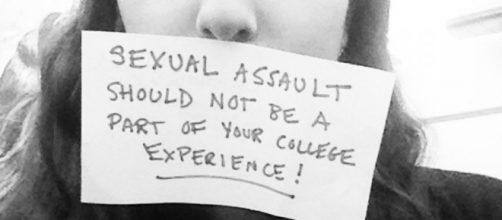With recent campus and Hollywood rape controversies rising across the globe, Sexual Assault has come into the public consciousness like never before. But are we supporting the victims, or are we failing them?
Police support
The number of rapes and sexual assaults reported to the police has been increasing in recent years, rising by 37% in 2015. This grew a further 11% in 2016, to 112,021 reported rapes or sexual assaults, however, the police only referred 6,855 of these cases to prosecutors.
Out of 1000 alleged sexual assaults, 994 will walk free.
Only 36 of those cases will be reported to police; only 11 will be referred to a prosecutor; and only 6 will end up convicted, with a criminal record. There is clearly an issue in how cases of rape and sexual assaults are dealt with when robberies or cases of assault and battery crimes end with more than three times the convictions than those of rape and sexual assault.
The Crown Prosecution website will proudly tell you that the volume of prosecutions is the highest ever recorded; standing at 4,643, leading to 2,689 convictions, but when 112,021 sexual assaults are reported, that starts to feel rather insignificant.
With all the claims and accusations of sexual assault coming out it might be worth taking a better look at how we deal with these cases.
Many women refuse to talk to the police as they fear the backlash they will receive, or that they might not be believed. Even more male victims are scared to come forward, afraid that they will be laughed at and their abuse will be minimised. 10.8% of rape reports aren’t classified as crimes by the police, which only encourages the idea that victims will not be believed should they choose to report it.
Survivors of sexual assault face a society that is all too ready to blame the victim – they must have brought it on themselves by being “too drunk” or wearing clothes that are “too suggestive”. People are taught not to get raped when in fact, we need to be teaching people not to rape. Sexual Education classes rarely touch satisfactorily on the idea of consent.
Rape Crisis organisations
The lack of support and belief in survivors of sexual assault is shown so very clearly in the availability of Rape Crisis Centres. At its peak in 1984, there were 68 organisations to support survivors, in 2017 there are only 47 organisations in England. There is only 1 in Wales. Until 2010 Rape Crisis organisations were told to “go local” for funding. The funding that they do have now has faced a series of cuts.
These organisations are likely to be the first point of contact for many victims of sexual assault, unsure or wary of going to the police straight away. The work they do to help victims is key in their recovery process, providing them with therapy vital to overcoming the trauma that comes with serious sexual assault.
More and more people are accessing Rape Crisis organisations, and in the wake of the Weinstein scandal, and all of the accusations surfacing about men in the public eye the organisations are dealing with far more non-recent cases. Organisations are facing far more pressure on their services, and with so few centres available across England and Wales leaves many victims dealing with the consequences alone.
A big re-think needs to happen about how we deal with cases of sexual assault. There needs to be more support for the survivors. The culture of victim blaming needs to stop. And maybe once we start listening to the victims and support them through their ordeal, we can start to fix the culture that has lead to repeated occurrences of sexual assaults.


